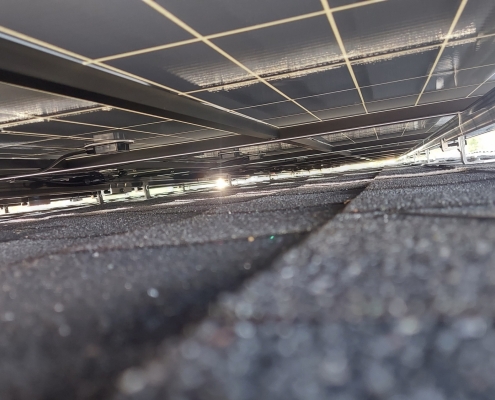How Does Warm Weather Affect Solar Panels?
As the weather heats up, here are some things to keep in mind about your solar panels.

Many customers worry about their panels losing efficiency in the heat. While it is true that heat affects solar panels, they don’t tend to lose efficiency until it gets above 77 °F. Solar panels have a temperature coefficient, which tells you how much efficiency decreases due to a one degree increase in temperature from the optimum temperature (77 °F). These coefficients tend to be small. For example, the coefficient of SunPower solar panels, which we often use at SGE, is -0.29%. This means that at 80 degrees, the efficiency of the solar panel only decreases by a little under 1%.
Additionally, solar panels actually keep roofs cooler. They absorb heat from the air and can make a roof up to 5 degrees cooler. The maximum temperature that many solar panels can withstand is 185°F, so there is no need to worry about them even on an extremely hot day.
At SGE, when we install solar panels, we leave some space between the panels and the roof. This allows for some airflow and keeps the panels cooler to decrease inefficiency.
So, as long as you don’t touch solar panels on a hot day (they are very hot to the touch), there is no need to worry about your panels as summer approaches. In fact, you might even find your house and roof to be a bit cooler because of them!






